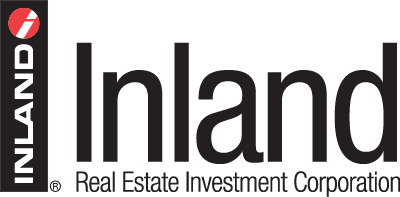Discover how you can expand your services to clients who own investment property.
We previously discussed the 1031 exchange and how fiduciaries are increasingly working with their clients who own investment property. RIAs who embrace real estate strategies can include their clients’ private real estate holdings in the financial and investment planning process, while experiencing tax and estate planning advantages. This helps you and your client gain a total financial picture and the role each investment plays in a diversified portfolio.
We also introduced the Delaware statutory trust, or DST. This unique investment structure satisfies 1031 exchange like-kind property requirements. DSTs provide accredited investors with access to fractional ownership in institutional quality properties. Your clients interested in this vehicle will need your guidance in selecting the right DST sponsor and investment for their particular tax situation and investment goals. Because each client’s tax implications are different, they should also consult with their own tax advisor.
Potential Benefits of a DST
A DST is a business trust created under Delaware law and has become a popular pass-through entity used to hold commercial real estate. As a pass-through entity, all income and tax benefits flow through to the investor.
The DST structure is a popular option for 1031 exchangers with unique benefits above and beyond traditional 1031 approaches. Those standout benefits include:
- Multiple Potential Tax Benefits
DSTs can offer tax benefits beyond the initial deferral of capital gains through a 1031 exchange transaction. All DST investments receive a step-up in cost basis so that heirs will not inherit capital gain liabilities. - Sophisticated Estate Plans for Heirs
With DSTs, investors can “swap until they drop” by exchanging properties again and again. Upon death of the DST owner, heirs may continue to benefit from an investment – potentially continuing to receive distributions and providing heirs the ability to choose what to do with their inherited portion of the DST. - No Management Responsibilities
A DST is a passive investment typically managed by the investment sponsor or other third party. Expert management can free your clients from the hassles and headaches of hands-on property management. - Limited Liability
If the DST holds property secured by a loan, the loan is considered "non-recourse" to your clients. - Institutional Properties
A DST offers access to institutional quality properties generally out of reach to most investors. And minimum investments in DSTs can be as low as $25,000. - Portfolio Diversification
Investors can divide an investment among multiple DSTs. Some DSTs even hold multiple properties in different locations, providing your clients with built-in diversification.
Risk Considerations
- Of course, in your due diligence process, you must weigh the benefits and risks of an investment before presenting it to a client. While a 1031 exchange through a DST structure may be appealing to your clients who are selling an investment property, there are limitations to consider:
- DSTs are designed to provide regular income; however, the amount and timing of distributions are not guaranteed. Distributions may vary depending on vacancy rates, unexpected expenses, or other factors.
- DST investments are not liquid and may decline as market and economic conditions change. DSTs typically have long hold times (often from 7 to 10 years) before a liquidation event.
- While investors may enjoy the passive nature of DSTs, management responsibility resides with one trustee, and investors do not have any operational control or decision-making power.
- When a DST offering is closed, the trustee cannot raise or accept new capital, potentially limiting the management team's ability to make improvements or significant repairs should unforeseen conditions arise.
- The trustee cannot enter into a new lease or negotiate current leases unless there is a need due to a tenant bankruptcy or insolvency.
When Might a Client Need You Most?
Not every client owns investment property, and as property owners, they may be satisfied with their holdings. Yet, you might be surprised how active investment property owners can be and multiple reasons can drive the decision to sell, such as:
- Liquidity needs
- A desire to free locked-up equity
- Preferring a newer property over an older, aging property
- The owner is moving and can't manage their property from afar
- Landlord fatigue from property management headaches
- The owner has inherited a property but has no desire to keep it
- The market is hot, and the owner wants to “sell high”
Recognizing these motivations among your clients who own investment property can help you provide timely and comprehensive advice.
When You Learn More, Your Clients Appreciate You More
If a client asks you about a potential property sale, as a fiduciary, understanding DSTs and the 1031 exchange process in your repertoire will distinguish you from others.
Your clients will appreciate you even more for your broad knowledge of diverse investment types, including private real estate. To learn more about this unique asset class and the different kinds of strategies available, visit the Inland Academy here.

